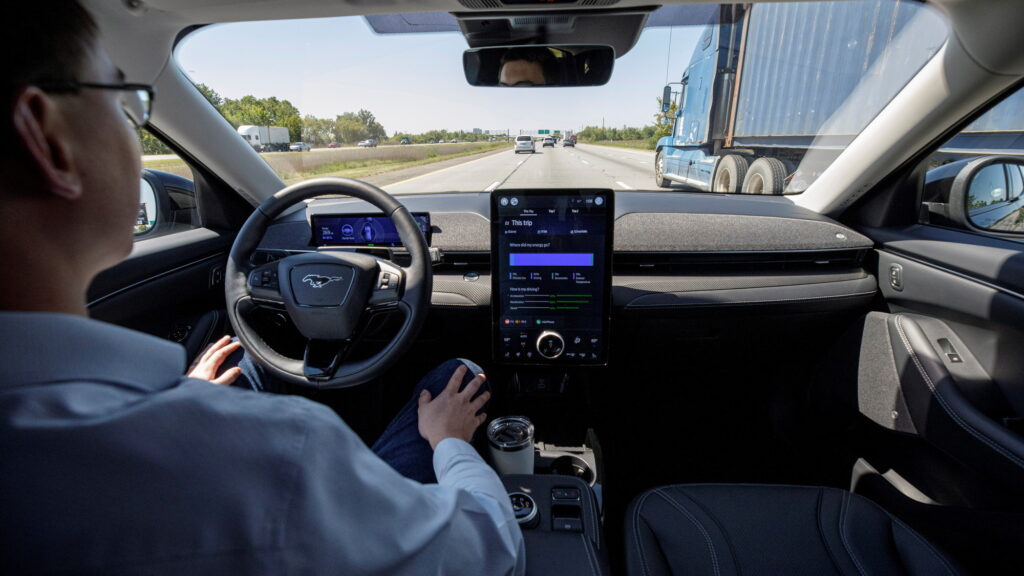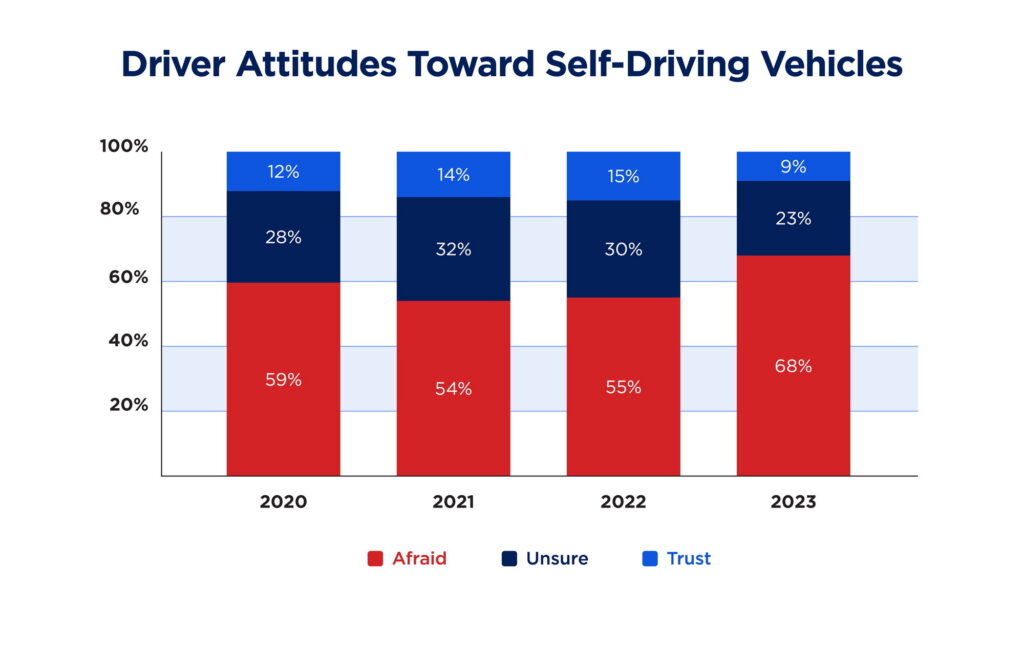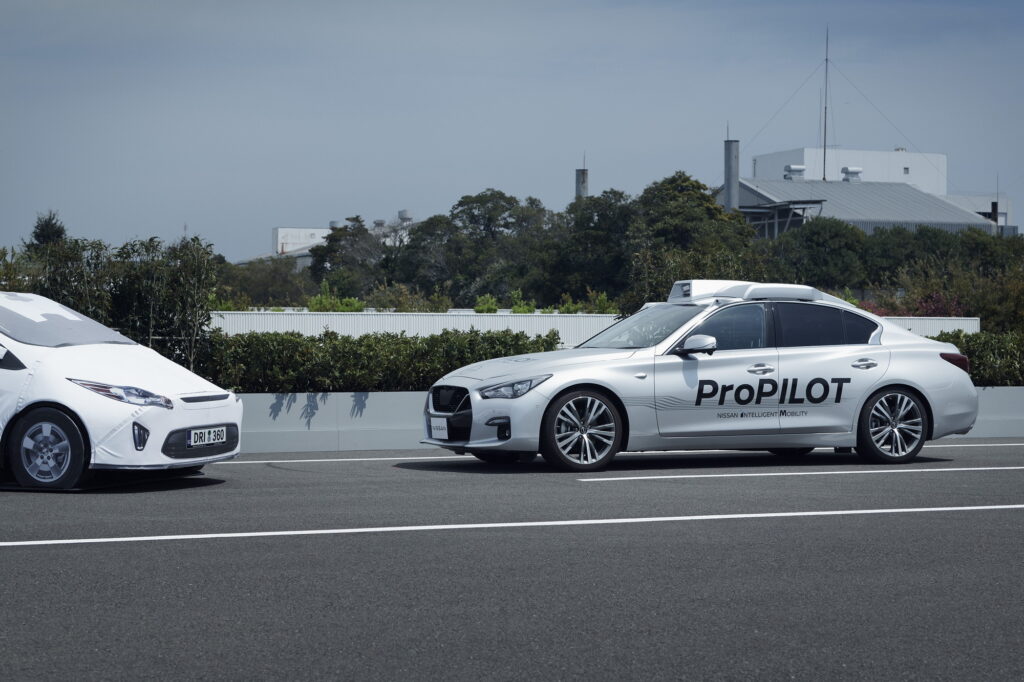68 percent of Americans are actively afraid of self-driving technology, while only nine percent trust it
3 hours ago
 –>
–> 
by Sebastien Bell
–>
It’s easy to understand the appeal of self-driving cars, and for a few years, industry investment seemed to suggest that they were an inevitability. As the size of the challenge, and the consequences of over-promising have become more widely known, though, trust in the technology has fallen.
That’s the conclusion that AAA came to after its most recent survey of attitudes towards self-driving cars. Just nine percent of those polled said they would trust a self-driving vehicle, down from 15 percent in 2022.
Unfortunately for futurists in the automotive industry, the number of people who were unsure about their feelings towards self-driving cars also fell. That meant that 68 percent of people surveyed said they were actively afraid of the technology – the highest ever recorded under the current methodology.
Read: Shareholders Sue Elon Musk And Tesla Over FSD Safety Claims

“We were not expecting such a dramatic decline in trust from previous years,” said Greg Brannon, director of automotive research for AAA. “Although with the number of high-profile crashes that have occurred from over-reliance on current vehicle technologies, this isn’t entirely surprising.”
Another part of that fear may come from fundamental misunderstandings of the technology. The survey found that nearly 10 percent of Americans believe they can currently buy a car that can drive itself while they sleep, despite the fact that they cannot.
advertisement scroll to continue
A large part of the confusion seems to come from naming conventions that are inconsistent across the industry. While Tesla’s Level 2 systems, Autopilot and FSD, have been singled out for misleading drivers, the study found that 22 percent of Americans expect other automakers’ systems (with names like ProPILOT and Pilot Assist) to have the ability to drive the car without human supervision, too. That is not the case.
Every system available today in a vehicle that a consumer can buy requires the driver to supervise the driving system. None, not even Mercedes’ Level 3 autonomous system, can be trusted with the car while the driver is asleep, and AAA believes that the industry must make that clearer to drivers.
“AAA seeks to partner with automakers to create greater consistency across the industry,” said Brannon. “Together, we can help consumers understand the type of technology their vehicle has along with how, when and where to use these systems, which will ultimately build trust in the vehicles of the future.”

 –>
–> 

